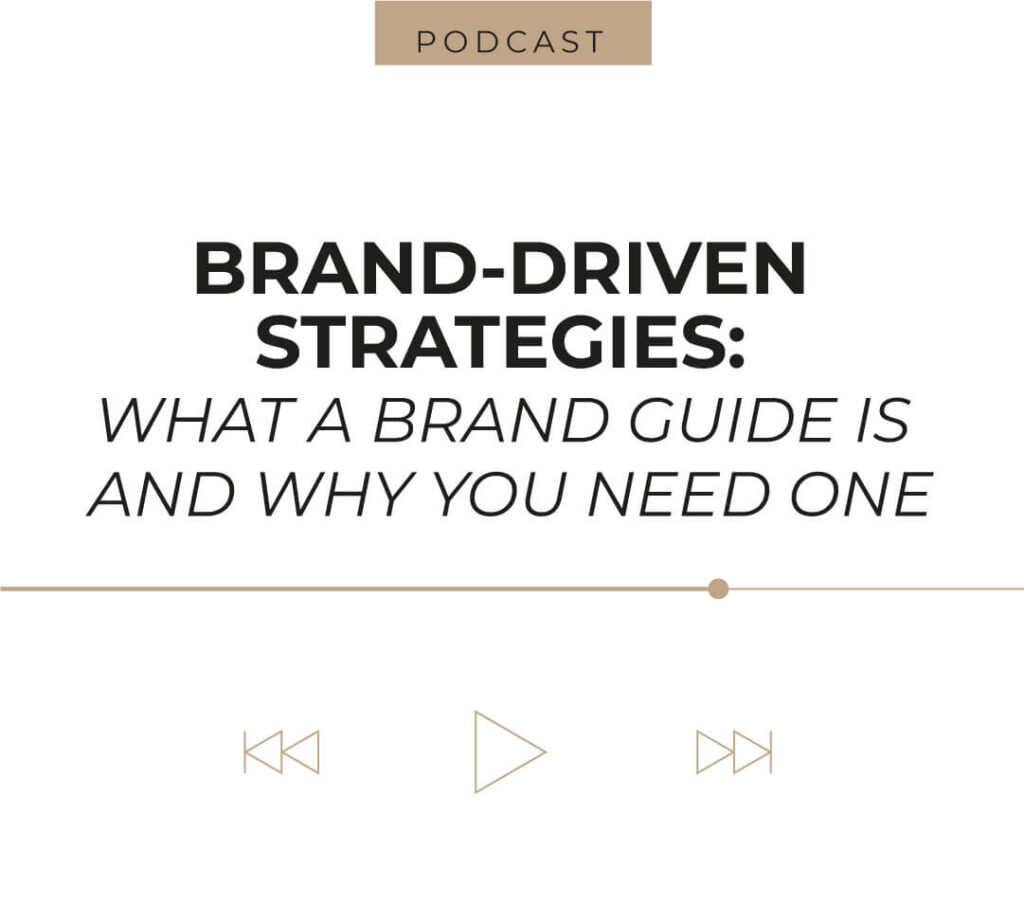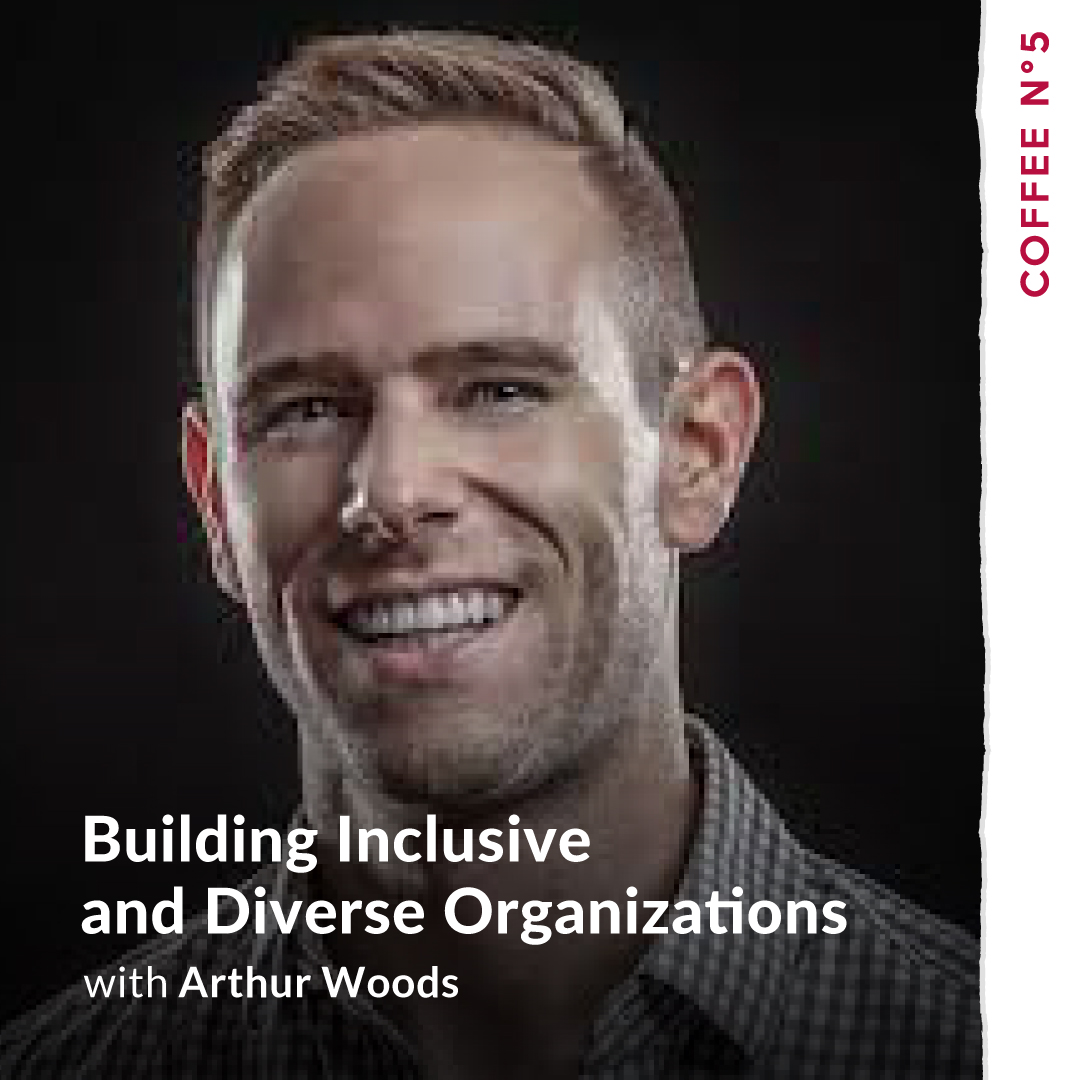Lara Schmoisman:
Whether you have a personal brand, whether you have your own business, it’s really important to be recognized for who you are. And when I talking about branding, I’m talking about different parts of the branding, of course, you have to have a logo or a name for your company. But you also need to know who your target is, and your target audience and be prepared to create content that will connect with your target audience. That’s why anything you do, you can take it lightly, I mean, choosing your colors on the brand is important. That’s why for example, I will never let someone do graphic design in my company, who is not a graphic designer is so important that they learn the psychology of the color, or the psychology of the the types are the fonts, I am super picky about fonts, I drives me crazy. And that person that can see that lip different gap, that little gap between the letters, and I can tell you what something is off. Like, those things are super important to communicate your brand and to tell who you are spacing, communicate whitespace, communicate whitespace is not bad, it’s good. But you need to make sure that we getting the right space and not whatever. So that’s why it’s important. I’m trying to make sure that I have it open here to see if there are comments, because I would love to address any questions that you might have. So with what that said, I will, let’s talk a little bit more about the brand guide and what’s the brand have died. Do you know when you buy a product, there is a manual. And it always says a manual that explain how the product works. Well here is exactly the same. You have your product, or your brand is a product. And we need to make sure that everyone who is going to be working with the product, they know how it works. So things that are important to put in your brand guide are well first of all, your logo. As we discussed before, a logo has to have a reason why you did that law, it needs to not only connect with you, but it needs to connect with your target market. Something super important call me old school on this. But a logo always need to work in black and white or white or grayscale. Think about this way, let’s just pretend for a second that we don’t have a color printer or even that we need to send a fax. Let’s do that local work. The other person in who receives the paper or in the print or fox will be able to see the logo that’s really important. That is a test that it will tell you if your logo works or not with color wise. Also, what is your logo for? Is your logo to be used in digital is your low logo to reuse in in banners. Do you have different versions of your logo?
If you do, the important thing here is that you think about digital digital Can you have a very tall logo, absolutely not, because if you put it in a website on top will look really small. So you don’t want that I mean it will look really large or you need to make it really small to fit and nobody will see it. Landscape logos are best but then let’s think about social social. Usually you have a little space a circle. So you need to make sure that your logo fits nicely there or you have a version of the logo that will fit. So those are important things and notions about the logo. Something else every time you have a logo you need as we say that works in black and white, but also you need to make sure that you have the colors in hex that is for digital in RGB that is for anything that is video or M CMYK that is for printing, you need to make sure you have the codes of each one. So whatever method you show in your, your logo in, it works for you. Okay? That’s first thing first, then we’re going to be talking about fonts, having fonts, that they’re gonna represent your brand, to me, it’s always important to have at least three fonts that are going to be an explain how you’re going to be using those fonts. Remember, that’s what it’s gonna really make you stand out between you and your competitors, because that’s why brands are well known. And it doesn’t matter if they work in China or in Argentina, or in Pakistan, whatever your brand is work on, if you have the style guide, everything should be the same. Something super important with logos, which is how you said and how you don’t use it, if you use it in a certain background, or use it in white, sir. So it’s really important to put the those amount. Okay, there are some brand guides that can be 10 pages, there are some grants that can be 150 pages, depending where you put it on products, or how you in different usages that you give. So today, we’re gonna be talking about a very simple version of it, to me is something important to put is the voice, not only the colors, not only the fonts, but also words that the brand uses and also words that the brand doesn’t use. And so again, you can be cohesive, remember, we’re going to be using your brand, and you’re going to be using it in your website, you’re going to be using it in social media, you’re going to use it magazines, maybe in television, you never know where you’re going to use it. But you will have to adapt to the medium. Like for example, if I send an message in Instagram, it will be very different than a message that I’m going to be sending in Twitter. In Instagram, I can write long text in Twitter, I have the count. So we need to adapt the native language of the brand but the brand boys need to be always the same. Also, we know that our target audience my very, very depends of where you are. There is this, me and my thing that it tells you what they says no, I cannot make your ugly logo bigger. And it’s not about making it bigger or smaller or ugly or not in need to work for your target audience, your target audience need to like for example, if you come in a vintage company, it makes sense to use a vintage font. But if you want to use some of super modern, stylish company, of course vintage font won’t work with it. You need to represent your brand. The same with a voice the words that you will use the mentality how you will be inclusive, how you work, communicate with your audience will be formal or informal. Remember that we work in a world ruled by SEO. So when you’re going to have Imbaba always writers for your brand. It’s important that you give it’s essential more than important that you give them the tools to be able to do their job. So that works also with personal brands when like for example everyone has a style of how they dress or like things that you prefer to work for example, V neck in my thing, I feel more comfortable in them. Looks like I feel like it fits me better. So that’s my thing for me being with the turtleneck will be really weird. And it wouldn’t be part of my brand for example. Dark nails always been my brand I’m trying to go lay there and but it’s not me and that’s my personal brand. So you just need to make sure that you’re cohesive if you it will be very odd from one day to Another you see me with flashy pink light and nail, some very classic. So that’s not me and it wouldn’t be my brand it will be something that is completely off. So your brand, your personal brand, your business brand is always the same. Remember, be cohesive and be constant. It doesn’t mean that later on you can make changes. It doesn’t mean that there are some places that you can be a little more playful, playful, like social. But this same the use of your brand, and your name brand and your logo always need to have a plan it needs to have this tutorial or how to use it. Well, I hope this was a short one, but I think I went fast and I gave you a lot of information. And I will see you next week. See you soon. Bye.








